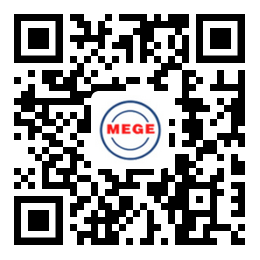Schaeffler at IAA Transportation: Powertrain and chassis solutions for a sustainable transportation sector
05 Sep,2024

Schaeffler and Vitesco Technologies stage combined showcase as key partners for successful transformation of the commercial vehicles industry Joint booth with Schaeffler branding features solutions for battery electric vehicles, fuel cell drives, and internal combustion engines Schaeffler presents new chassis technologies facilitating the transportation sector’s shift to highly automated driving Schaeffler will be at the upcoming IAA Transportation show, which runs in Hanover, Germany, from 16 to 22 September. The company is staging a 250-square-meter showcase headlined “Energizing Transportation. Together” at booth A40 in hall 12, where it will be profiling itself as a key partner for successful transformation. IAA Transportation 2024 will be the first major trade show at which Schaeffler and Vitesco Technologies have joined forces to present their complementary product ranges for commercial vehicles. “The joint display under the Schaeffler brand is a demonstration of the fact that our two companies are stronger together,” said Matthias Zink, CEO Automotive Technologies at Schaeffler AG. “We will demonstrate that our respective innovative products work together perfectly to provide solutions for commercial vehicles. By generating these synergies, we are offering added value for our customers and reaching another milestone in our journey to becoming the leading Motion Technology Company.” Meeting emission reduction targets together Schaeffler is using its presentation at the show to profile innovative powertrain and chassis solutions for a transportation sector faced with challenging emission reduction targets along the road to sustainability. EU regulations mandate a 15 percent reduction in commercial vehicle CO2 emissions from 2019 levels by 2025, and a 45 percent cut by 2030. While heavy commercial vehicles and buses constitute only 4 percent of the world’s vehicle fleet, the enormous volumes of goods they transport mean they are responsible for around 40 percent of global transportation-sector CO2 emissions. Successful decarbonization will therefore require efficiency increases across all relevant powertrain technologies, from diesel and hydrogen combustion engines to battery electric and fuel cell drives. Matthias Zink: “We are supporting our customers as partners for successful transformation – so that they can meet their emission reduction targets. That is why our strategy is to develop and manufacture a mix of energy- and resource-efficient powertrain solutions for a wide range of applications.” Diverse offerings for electrified powertrains This strategy is based on Schaeffler’s own analysis, which indicates that by 2030, some 20 percent of all new commercial vehicle registrations will be electrically powered. Electrified powertrains have been part of Schaeffler’s core business for many years. The merger with Vitesco Technologies builds on this, enabling the company to further expand its expertise and capabilities in powertrain electronics and software. The Schaeffler booth at IAA Transportation will present the company’s diverse array of products and solutions for commercial-vehicle electric powertrains. The innovations on show include everything from permanent-magnet electric motors featuring wave winding technology and offering over 200 kilowatts of continuous output, to fuel cell stacks with graphite and metal bipolar plates and a maximum output of 140 kilowatts, to 800-volt power electronics based on silicon carbide semiconductors. Visitors will be able to see the company’s systems know-how first-hand thanks to an exhibit of a heavy-duty e-axle assembly comprising two electric motors, a three-speed transmission, electromechanical actuator technology, and silicon carbide power electronics. The electric axle also features insert-unit wheel bearings that have been fitted into cast housings to form wheel bearing units, mounted onto the axle, and then clamped in place. This compact design results in weight savings of up to 15 kilograms per wheel compared with standard tapered roller bearings. It also eliminates the maintenance typically required by other bearing designs. Used in combination with friction-optimized seals, insert units can reduce friction by up to 70 percent. In battery-electric vehicles, that corresponds to about 5 kilometers of additional range per charge. Optimizing the efficiency of combustion engines In 2030, close to three quarters of all commercial vehicles will still incorporate combustion engine technology of some form, whether diesel or hydrogen. “Internal combustion engines will continue to be a necessary part of the mix for reducing emissions,” said Matthias Zink. “When it comes to meeting climate targets, every single gram of emission savings counts.” That is why Schaeffler is developing technologically leading-edge components and systems for improving the energy efficiency of hydrogen, diesel and natural-gas engines. The company’s showcase of these technologies at IAA Transportation includes iFlexAir, a variable valvetrain system for commercial vehicles that can reduce CO2 emissions of diesel vehicles by up to 5 percent. In hydrogen combustion engines, the system boosts efficiency by 6 percent while significantly reducing NOx raw emissions. This technology is complemented by the NOx sensor from Vitesco, which measures the NOx concentration in exhaust gas and hence supports both efficient exhaust gas treatment and reliable monitoring of compliance with emission standards such as Euro 7. Technologies for highly automated driving The trend towards highly automated driving is gathering pace, with several vehicle manufacturers planning to start production of highly automated (Level 4) commercial vehicles by as soon as 2027. This technology is sorely needed because of the growing worldwide shortage of drivers. According to a study by the International Road Transport Union (IRU), Europe’s transportation sector was short more than 233,000 drivers last year. If no meaningful countermeasures are taken, the driver shortage could balloon to 745,000 by 2028, the study says. Alongside this, driver labor costs account for a large proportion of the total cost of ownership (TCO) – around one third in Europe. Schaeffler is helping to drive the necessary change in the transportation sector with various innovative chassis technologies that are enablers of highly automated driving. These include the electro-hydraulic power steering system (EHPS) and the Advanced Sensor Cleaning System (ASCS), both of which Schaeffler is exhibiting at this year’s IAA Transportation. Schaeffler has been delivering the redundant EHPS system for use in the series production of a Chinese commercial vehicle manufacturer since 2023. The system supports Level 2 automation and higher-level autonomous driving functions. The ASCS system was developed by Vitesco Technologies to clean autonomous-vehicle cameras and sensors and hence safeguard error-free functioning.












